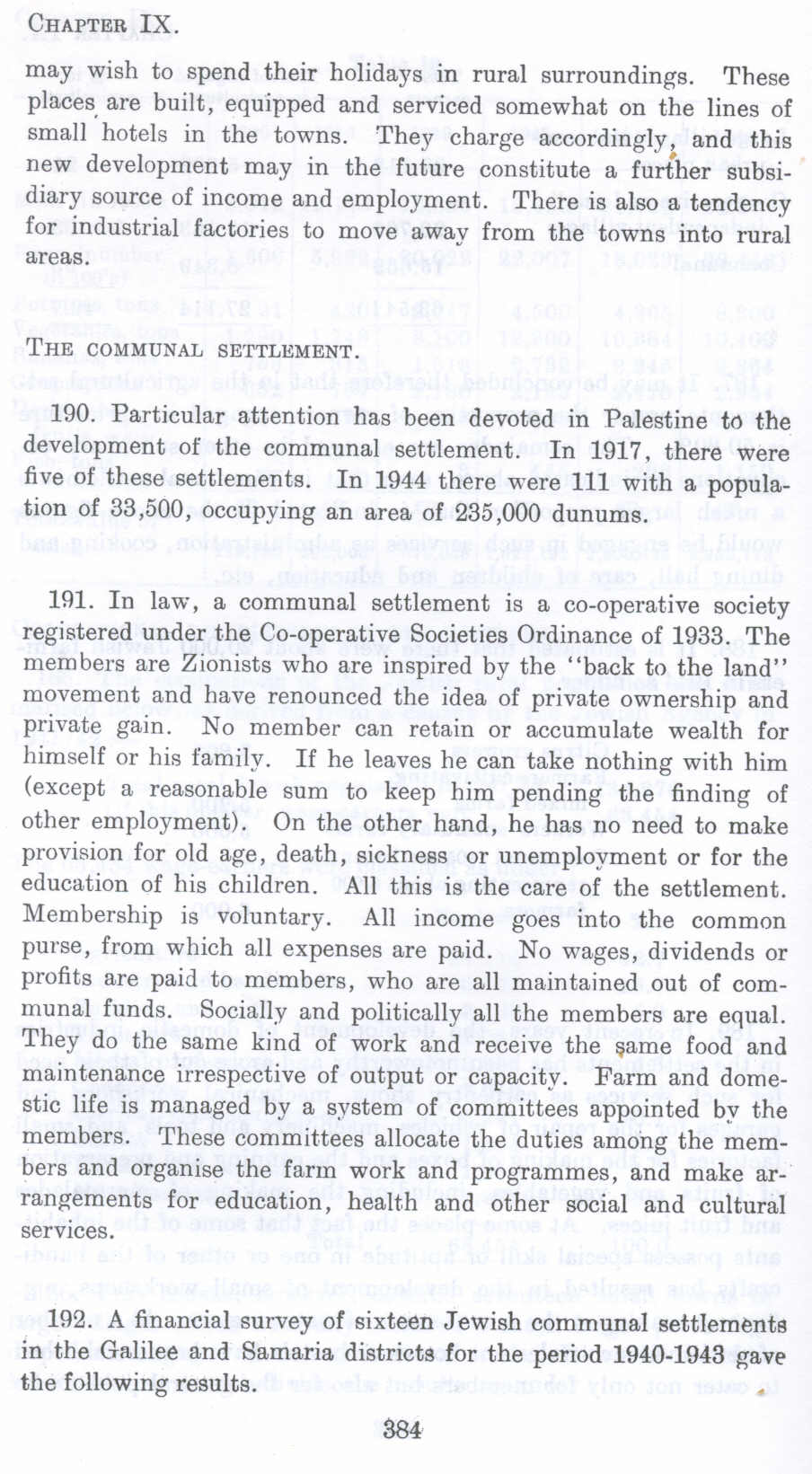| Prev | Next |  |
| Prev | Next |
| PalestineRemembered | About Us | Oral History | العربية | |
| Pictures | Zionist FAQs | Haavara | Maps | |
| Search |
| Camps |
| Districts |
| Acre |
| Baysan |
| Beersheba |
| Bethlehem |
| Gaza |
| Haifa |
| Hebron |
| Jaffa |
| Jericho |
| Jerusalem |
| Jinin |
| Nablus |
| Nazareth |
| Ramallah |
| al-Ramla |
| Safad |
| Tiberias |
| Tulkarm |
| Donate |
| Contact |
| Profile |
| Videos |
The Communal Settlement (Kibbutzim) in Palestine before 1948 (Nakba), British Mandate: A Survey of Palestine: Volume I - Page 384. Chapter IX: Agriculture: Section 7: Jewish Agricultural Settlements: |
Disclaimer
The above documents, article, interviews, movies, podcasts, or stories reflects solely the research and opinions of its authors. PalestineRemembered.com makes its best effort to validate its contents.


Post Your Comment
*It should be NOTED that your email address won't be shared, and all communications between members will be routed via the website's mail server.
may wish to spend their holidays in rural surroundings. These places are built, equipped and serviced somewhat on the lines of small hotels in the towns. They charge accordingly, and this new development may in the future constitute a further subsidiary source of income and employment. There is also a tendency for industrial factories to move away from the towns into rural areas.
THE COMMUNAL SETTLEMENT.
190. Particular attention has been devoted in Palestine to the development of the communal settlement. In 1917, there were five of these settlements. In 1944 there were 111 with a population of 33,500, occupying an area of 235,000 dunums.
191. In law, a communal settlement is a co-operative society registered under the Co-operative Societies Ordinance of 1933. The members are Zionists who are inspired by the "back to the land" movement and have renounced the idea of private ownership and private gain. No member can retain or accumulate wealth for himself or his family. If he leaves he can take nothing with him (except a reasonable sum to keep him pending the finding of other employment). On the other hand, he has no need to make provision for old age, death, sickness or unemployment or for the education of bis children. All this is the care of the settlement. Membership is voluntary. All income goes into the common purse, from which all expenses are paid. No wages, dividends or profits are paid to members, who are all maintained out of communal funds. Socially and politically all the members are equal. They do the same kind of work and receive the same food and maintenance irrespective of output or capacity. Farm and domestic life is managed by a system of committees appointed by the members. These committees allocate the duties among the members and organise the farm work and programmes, and make arrangements for education, health and other social and cultural services.
192. A financial survey of sixteen Jewish communal settlements in the Galilee and Samaria districts for the period 1940-1943 gave the following results.
Page 384